Posts Tagged ‘Mahershala Ali’
91st Oscar Awards
The 91st Academy Awards took place on Sunday 24th February 2019 at the Dolby Theatre, Hollywood, Los Angeles, California
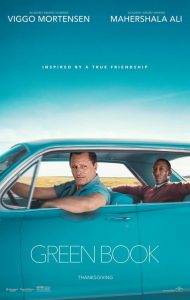
Best Picture: Green Book
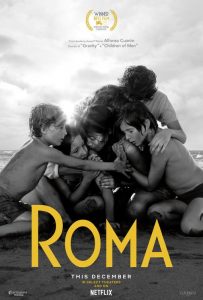
Best Director: Alfonso Cuaron – Roma

Best Actor: Rami Malek – Bohemian Rhapsody
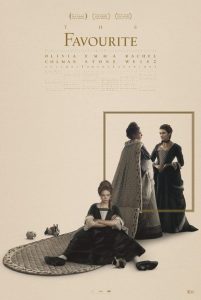
Best Actress: Olivia Colman – The Favourite
Best Supporting Actor: Mahershala Ali – Green Book
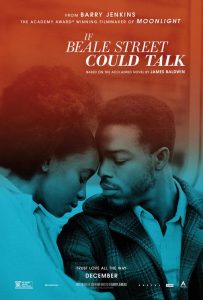
Best Supporting Actress: Regina King – If Beale Street Could Talk
Best Original Screenplay: Green Book
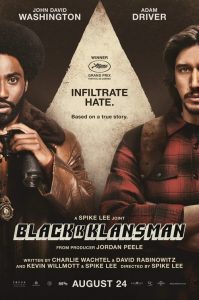
Best Adapted Screenplay: Spike Lee – BlackkKlansman
Best Cinematography: Roma
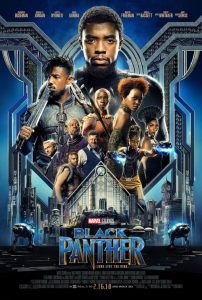
Best Costume Design: Black Panther
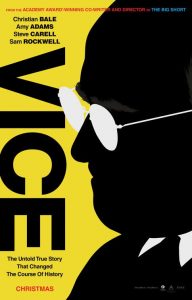
Best Make up & Hairstyling: Vice
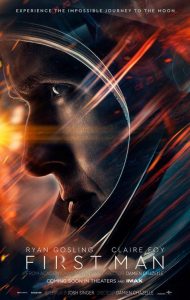
Best Visual Effects: First Man
Best Film Editing: Bohemian Rhapsody
Best Sound Editing: Bohemian Rhapsody
Best Sound Mixing: Bohemian Rhapsody
Best Production Design: Black Panther
Best Documentary Feature: Free Solo
Best Original Score: Ludwig Goransson – Black Panther
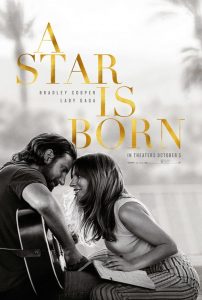
Best Original Song: Shallow from A Star is Born
Best Animated Feature Film: Spiderman: Into the Spiderverse
Best Foreign Language Film: Roma – directed by Alfonso Cuaron
When Dignity Prevails
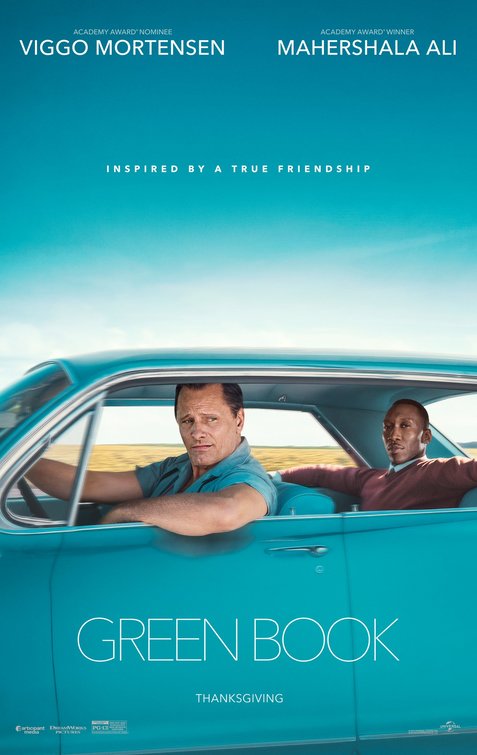
Green Book
Director: Peter Farrelly
Cast: Viggo Mortensen, Mahershala Ali, Linda Cardellini, P. J. Byrne, Sebastian Maniscalco, Dimiter D. Marinov, Paul Sloan, Anthony Mangano
Oscar nominee Viggo Mortensen (Captain Fantastic, Eastern Promises) and Oscar winner Mahershala Ali (Moonlight) give top notch performances as Tony “The Lip” a working class Italian American bouncer from the Bronx and a classical music pianist, the erudite Dr Don Shirley in the superb road film Green Book directed by Peter Farrelly.
When Tony the Lip, a loud mouth, aggressive and compulsive eater bouncer finds himself out of work at a New York nightclub he takes the job as a hired driver for the sophisticated and refined Dr Don Shirley who has an itinerary of classical concerts to perform in the deep South from Raleigh in North Carolina to Birmingham in Alabama in 1962 at the height of racial segregation and tensions in the American Southern States.
Mortensen gives one of his best on screen performances in a reversal of the classic Bruce Beresford film Driving Miss Daisy, as the crass chauffeur for the cool and occasionally collected Dr Shirley beautifully played by Mahershala Ali who expertly masks deeper resentments at having to play for these wealthy white audiences in Country Clubs in the deep South yet knowing that he will not be treated as an equal.
Often the managers offer him separate amenities such as change rooms or even a linen closet to utilize highlighting the hideous social repercussions of racial segregation not to mention the obvious hypocrisies inherently contained in such an absurd policy. While Tony is quick to protest this treatment, Dr Don Shirley insists that dignity must prevail and they must not lose their cool.
The title of the film, Green Book refers to an American road user’s guide for Negroes as they travel through the Deep South even offering alternative places of accommodations and what rules to comply with.
Director Peter Farrelly never overemphasizes the theme of racial segregation but rather subtly hints at it through many humorous scenes as the two men from vastly different backgrounds form an unlikely bond especially when Tony has to somehow curb Dr Shirley self-destructive streak and pluck him from some rather awkward situations.
The onscreen chemistry between Mortensen and Ali is beautiful and makes Green Book shine as a fascinating portrait of male friendship struck up through a thoroughly historical and unusual set of social circumstances in 1962.
Green Book has fantastic music, a wonderful supporting cast including a lovely performance by Linda Cardellini as Tony’s patient wife Dolores who Dr Shirley assists Tony in writing beautiful love letters to while the duo are on the road in hostile territories.
Green Book is highly recommended viewing and both Viggo Mortensen and Mahershala Ali deserve Oscars for their brilliant performances.
Green Book gets a film rating of 9 out of 10 and is all the more relevant since it is based on a true story.
72nd BAFTA Awards
THE 72nd BAFTA AWARDS /
THE BRITISH ACADEMY FILM AWARDS
Took place on Sunday 10th February 2019 in London
at the Royal Albert Hall
BAFTA Winners in the Film Category:
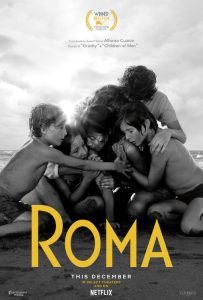
Best Film: Roma
Best Director: Alfonso Cuaron
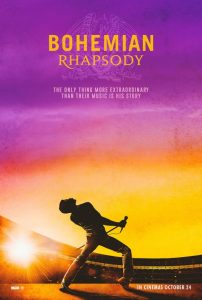
Best Actor: Rami Malek – Bohemian Rhapsody
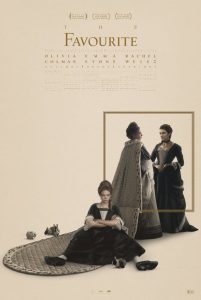
Best Actress: Olivia Colman – The Favourite
Best Supporting Actress: Rachel Weisz – The Favourite
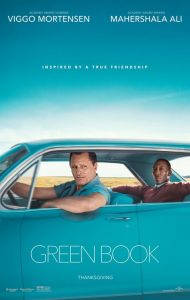
Best Supporting Actor: Mahershala Ali – Green Book
Best Original Screen Play: Deborah Davis & Tony McNamara – The Favourite
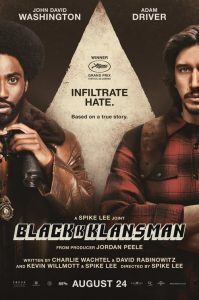
Best Adapted Screenplay: BlackkKlansman
British Rising Star Award: Letitia Wright
Best British Film: The Favourite
Best Cinematography: Roma
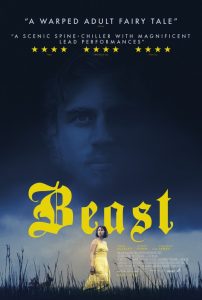
Outstanding Debut Film: Beast
Best Foreign Language Film: Roma
Best Costume Design: Sandy Powell – The Favourite
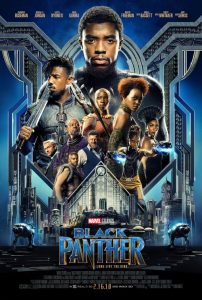
Best Visual Effects: Black Panther
76th Golden Globe Awards
Took Place on Sunday the 6th January 2019 in Los Angeles hosted by the Hollywood Foreign Press Association – Here are the 2019 Winners in the Film Categories
Best Motion Picture – Drama

“Bohemian Rhapsody”
Best Director – Motion Picture

Alfonso Cuaron (“Roma”)
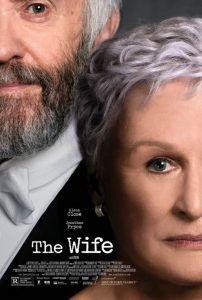
Best Actress in a Motion Picture – Drama:
Glenn Close (“The Wife”)

Best Actor in a Motion Picture – Drama:
Rami Malek (“Bohemian Rhapsody”)

Best Motion Picture – Musical or Comedy:
“Green Book”
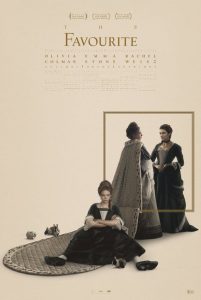
Best Actress in a Motion Picture – Musical or Comedy:
Olivia Colman (“The Favourite”)
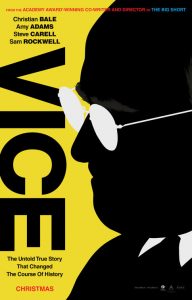
Best Actor in a Motion Picture – Musical or Comedy:
Christian Bale (“Vice”)
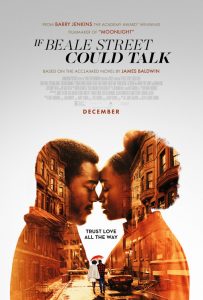
Best Actress in a Supporting Role in any Motion Picture:
Regina King (“If Beale Street Could Talk”)
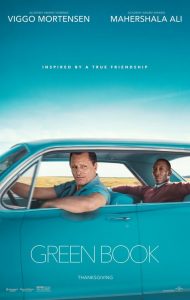
Best Actor in a Supporting Role in any Motion Picture:
Mahershala Ali (“Green Book”)

Best Motion Picture – Animated:
“Spider-Man: Into the Spider-Verse”

Best Motion Picture – Foreign Language Film:
“Roma”
Best Screenplay – Motion Picture:
Peter Farrelly, Nick Vallelonga, Brian Currie (“Green Book”)

Best Original Score – Motion Picture:
Justin Hurwitz (“First Man”)
89th Academy Awards
The 89th Academy Awards / The Oscars
Sunday 26th February 2017
OSCAR WINNERS AT THE 89TH ANNUAL ACADEMY AWARDS
Best Picture: Moonlight
Best Director: Damien Chazelle – La La Land
Best Actor: Casey Affleck – Manchester by the Sea
Best Actress: Emma Stone – La La Land
Best Supporting Actor: Mahershala Ali – Moonlight
Best Supporting Actress: Viola Davis – Fences
Best Original Screenplay: Kenneth Lonergan – Manchester by the Sea
Best Adapted Screenplay: Barry Jenkins & Tarell Alvin McCraney – Moonlight
Best Cinematography: Linus Sandgren – La La Land
Best Costume Design: Colleen Atwood – Fantastic Beasts and Where to Find Them
Best Make up & Hairstyling: Alessandro Bertolazzi, Giorgio Gregorini, and Christopher Nelson – Suicide Squad
Best Visual Effects: Robert Legato, Adam Valdez, Andrew R. Jones, and Dan Lemmon – The Jungle Book
Best Sound Editing: Sylvain Bellemare –Arrival
Best Sound Mixing: Kevin O’Connell, Andy Wright, Robert Mackenzie, and Peter Grace – Hacksaw Ridge
Best Film Editing: John Gilbert – Hacksaw Ridge
Best Production Design: David Wasco and Sandy Reynolds-Wasco – La La Land
Best Documentary Feature: O. J. Made in America directed by Ezra Edelman and Caroline Waterlow
Best Foreign Language Film: The Salesman directed by Asghar Farhadi (Iran)
Source: https://en.wikipedia.org/wiki/89th_Academy_Awards
Black Boys Look Blue
Moonlight
Director: Barry Jenkins
Cast: Mahershala Ali, Naomie Harris, Trevante Rhodes, Janelle Monae, Andre Holland, Alex Hibbert, Ashton Sanders
Director Barry Jenkins breaks new visual ground in his evocative film Moonlight based upon the unproduced play “In the Moonlight Black Boys look Blue” written by Tarell Alvin McCraney.
Premiering at the Telluride film festival in Colorado, Moonlight has attracted huge critical acclaim and awards buzz anchored by two superb performances by Mahershala Ali, last scene in the brilliant series House of Cards, as a African-American Cuban drug dealer Juan and British actress Naomie Harris (Skyfall) in a breath taking role as the crack addicted mother Paula.
Moonlight deconstructs masculinity, sexuality and race in an incisive portrayal of one man’s growth from childhood into adulthood. Set in a poverty stricken Miami neighbourhood, Chiron played in three life stages by Alex Hibbert as a young boy nicknamed Little, Ashton Sanders as a teenager named Chiron and Trevante Rhodes as a muscle bound young man nicknamed Black.
Throughout this study of maturity and evolving masculinity, Chiron has to contend with his drug addicted mother Paula, who incidentally is being supplied crack cocaine by Juan who initially takes Little under his wing as a foster father and teaches him to swim in one of the film’s most effective scenes. The ethical conflict of these two parental figures adds to Chiron’s inability to express his emotions except to ask direct questions like: What is a faggot?
Moonlight is a stunning film, a visual masterpiece superbly directed by Barry Jenkins which gets under the viewers skin and inhabits their perceptions, changing every misconception there is about socially constructed identities – what it means to be black, what it means to be an addict and what it means to be gay.
Chiron’s sexual awakening on a moonlit beach in Miami as he kisses school friend Kevin played by Andre Holland sets the stage for a provocative and important film.
Moonlight is sure to be discussed and analyzed in terms of visual identity and perception but more poignantly it’s a superb portrayal of one man’s emotional journey from bullied child and teenager to a muscle bound man who manages to escape the confines of his conflicted childhood and reconcile with his real identity and find love in the process. The scene between Chiron and a much older Paula is truly phenomenal.
Moonlight is highly recommended viewing, a visually impressive film already generating critical acclaim and incisive film analysis.
Flipping the Coin
The Hunger Games: Mockingjay Part 2
Director: Francis Lawrence
Cast: Jennifer Lawrence, Josh Hutcherson, Liam Hemsworth, Woody Harrelson, Elizabeth Banks, Donald Sutherland, Jeffrey Wright, Julianne Moore, Sam Claflin, Paula Malcolmson, Philip Seymour Hoffman, Stanley Tucci, Natalie Dormer, Sarita Choudhury, Patina Miller, Mahershala Ali, Willow Shields, Michelle Forbes
Consistency of vision is always imperative when converting a trilogy of bestselling novels into films and certainly The Hunger Games trilogy based upon the allegorical novels by Suzanne Collins have maintained that consistency in terms of casting, production design and overall cinematic appeal.
Whether parent company Lionsgate’s decision to split the final installment of The Hunger Games, Mockingjay was a wise one remains debatable. Nevertheless director Francis Lawrence returns with the second part of The Hunger Games: Mockingjay picking up exactly where the first part finished.
Peeta Mellark has been returned to the rebels from the capitol, although slightly deranged and brainwashed. Our sturdy heroine Katniss Everdeen, beautifully played by Oscar winner Jennifer Lawrence (Silver Linings Playbook) is unsure of Peeta’s complete rehabilitation and loyalty.
In a brutal war, which takes Katniss and her team first to District 2 and then onto a treacherous mission of penetrating the devastated capitol, where images of the aging President Snow, still wonderfully played by Donald Sutherland, are flashed across random TV screens at interim moments during a savage battle between the rebels and peacekeepers. Urged on by the charismatic District 13 President Coin, played by Oscar winner (Still Alice) Julianne Moore, Katniss and her unit are implored to take the capitol and assassinate President Snow.
As the love triangle which was initiated in The Hunger Games, between Katniss, Peeta and the hunky Gale Hawthorne, played by Liam Hemsworth is teased out to its logical conclusion, Katniss has to stay true to her own convictions, despite the brutal toll it takes on herself and her family. Katniss realizes in Mockingjay Part 2 that she is a symbolic pawn between Presidents Snow and Coin, while always struggling to retain her own autonomy and individuality.
Woody Harrelson and Elizabeth Banks reprise their roles as Haymitch and Effie Trinket respectively, although audiences should be warned that Mockingjay Part 2 is considerably darker in tone and texture than the lurid The Hunger Games or the visually gripping Catching Fire.
A dark mood of warfare and finality hangs over the film, even with the cast giving a sense that this violent action trilogy has exhausted all options. Considering the recently high level of violence in the contemporary world, especially as shown on international news broadcast, suffice is to say that American author Suzanne Collins has made her point about millennials becoming immune to violence both on screen and in real life.
Despite an all-star cast including the last screen appearance of Oscar winner Philip Seymour Hoffman (Capote) as Plutarch Heavensbee, Mockingjay Part 2, belongs to Jennifer Lawrence and Josh Hutcherson as their characters come to terms with their dramatic destiny in the face of a manipulative conflict between the Rebels and the Capitol.
The Hunger Games: Mockingjay Part 2 is recommended viewing for fans of the entire trilogy although the 3-D technology was not used effectively, making the second part of Mockingjay too long and aimless. Inevitably, Katniss Everdeen triumphs but at great personal cost to herself.
War is a Constructed Image
The Hunger Games: Mockingjay Part 1
Director: Francis Lawrence
Cast: Jennifer Lawrence, Liam Hemsworth, Josh Hutcherson, Woody Harrelson, Julianne Moore, Jeffrey Wright, Elizabeth Banks, Phillip Seymour Hoffman, Natalie Dormer, Donald Sutherland, Robert Knepper, Paula Malcolmson, Sam Claflin
The final book of the Hunger Games Trilogy, Mockingjay comes to the big screen in two parts, Hunger Games: Mockingjay Part 1 is a monochromatic diatribe about notions of war as a constructed image, and intelligently explores the concept of rebellion.
Katniss Everdeen, superbly played by Oscar Winner Jennifer Lawrence (Silver Linings Playbook) has survived the Quarter Quell and plunged Panem into civil war between the Capital and the Districts, with her own District 12 being obliterated by the ruthless Capitol bombers.
Director Francis Lawrence creates a superb dichotomy between a more vicious Capital and the newly discovered District 13, a haven for the rebels built entirely below ground so as to escape the Capital’s firepower. Utilitarian District 13 ruler Madame President Coin, wonderfully played by Oscar Nominee Julianne Moore has plans of using Katniss as the much beloved symbol of resistance, the Mockingjay.
However in the Capital, President Snow, played by veteran star Donald Sutherland has captured Peeta Mellark, the tribute who didn’t escape the Quarter Quell and like Coin is using Mellark (Josh Hutcherson) in a vicious game of propaganda and deceit to lure Katniss and her supporters into attacking the Capital.
In this manipulated game of propaganda, both Katniss and Mellark are used as constructs by a ruthless war machine intent on destroying humanity in this allegorical society. With Katniss being filmed against the ruins of one of the Districts after a hospital is destroyed, the viewer would think they are watching scenes of the recent conflict in the Syrian Civil War or the Crisis in the Ukraine.
Director Lawrence obviously working with a far bigger budget, has a clearer vision of this dystopian world post Hunger Games, after the lavish excess of the Capitol and the vicious expandability of the children fighting each other in a death match which made the first two films The Hunger Games and Catching Fire that much more riveting.
Whilst in the first two, the children or tributes as they were known in Suzanne Collins novels were the centre of attention, in Mockingjay it is clearly an adult world, with war a primary signifier in moving the brutal narrative along, ably assisted by a brilliant supporting cast.
This cast includes Oscar winner Phillip Seymour Hoffman (who incidentally died of a drug overdose during the filming of Mockingjay) in one of his last screen performances as Plutarch Heavensbee, Elizabeth Banks in a wonderful cameo as the downtrodden Prisoner of War yet still irrepressible Effie Trinket, along with Woody Harrelson as Haymitch and Jeffrey Wright as Beetee who all bring a gravity to Katniss’s predicament as her decision to become the symbol of the rebellion is thwarted by President Snow’s twisted methods especially using Mellark as a pawn.
The Hunger Games and Catching Fire was clearly aimed at the mature teenage market, but Mockingjay Part One is definitely aimed at a more mature audience whose has become used to seeing violent images of global conflicts flash across their TV screens. Even though it’s an allegorical tale Mockingjay Part 1 undoubtedly reflects a contemporary 21st century immunity to violent onscreen images of war, highlighting that along with all the propaganda and the rhetoric, the constant bloodshed seen has become engrained in a future society which appears to be emotionally resistant to such global strife, despite its constant coverage on all the international news broadcasts.
Mockingjay Part 1, although the storyline purposefully is left hanging at the end, still remains an impressively dark cinematic vision, gripping and unrelenting. Audience naturally hope that Part 2 will be equally brilliant and impressive. This is recommended viewing for those that have read the books and have followed the massive success of this ferocious and fascinating film franchise.
Victims and Heroes
The Place Beyond the Pines
Director: Derek Cianfrance
Cast: Bradley Cooper, Ryan Gosling, Rose Byrne, Dane DeHaan, Eva Mendes, Ray Liotta, Ben Mendelsohn, Bruce Greenwood, Mahershala Ali, Emory Cohen
Critically acclaimed Blue Valentine director Derek Cianfrance’s absorbing and poignant three act family drama, The Place Beyond the Pines is almost Shakespearean in nature as the narrative delves into the psyche of contemporary masculinity and the legacy that men leave behind for their sons. That legacy is naturally shaped by the actions and deeds that a man did whose triumphs or sins will haunt the next generation.
The film opens with a motorbike stunt sequence in a metal ball in which three stunt riders’ ride around in a seeming and noisy symmetry. Ryan Gosling (Drive, Gangster Squad) is introduced as Luke who as a down on his luck, tattooed stunt driver earns money at the local fairs in upstate New York, Schenectady to be exact. After a brief one night stand with a local waitress Romina played by Eva Mendes, the itinerant stunt rider Luke returns to the town a year later to discover that he has fathered a one year old son.
Cash-strapped and desperate, he befriends a local two bit mechanic who says that the quickest way to make some serious cash is to rob a couple of local banks using his unique stunt riding skill set. Desperate to offer some form of financial support to Eva and his newborn baby, Gosling soon goes on a Bank robbing spree. After a serious of successful stints, one last job goes horribly wrong and Gosling’s fate as a man and a father gets inextricably tied in with a young and ambitious local cop Avery Cross, superbly played by Bradley Cooper (who really has excelled in the serious acting stakes since his remarkable Oscar nominated performance in Silver Linings Playbook).
The Place Beyond the Pines is an intimately shot and skilfully directed study of masculinity by Derek Cianfrance and the intricate sprawling story line is both riveting and powerful as the actions of both men, Gosling and Cross reverberate for the next two decades.
This is a brilliant piece of film noir assisted by a remarkable supporting cast including a wonderfully menacing performance by Ray Liotta as a corrupt cop Deluca and Dane DeHaan as Gosling’s confused but vulnerable teenage son Jason. Whilst the female characters are intentionally underwritten, it really is Mendes who excels in a grittier role as a mother who has to bring up a son whilst keeping a secret about his real father’s criminal past.
The Place Beyond the Pines is about legacy, betrayal, corruption, aggression and ambition in a small town American community which sees two men from opposite social spectrums both portrayed alternatively as victim and hero in the narrative who make the wrong choices for all the supposedly right reasons, only to have those choices impact their own son’s destinies.
Cianfrance deserves an Oscar nomination for his gripping direction as he deftly captures the intensity and brooding atmosphere of small town America where every man is angling for a better life despite the consequences and their own circumstances. The Place Beyond the Pines is a highly recommended film which will firmly elevate Oscar Nominees Ryan Gosling and Bradley Cooper as two of the most promising actors of their generation. This gripping crime drama also stars Rose Byrne as Avery Cross’s wife Jennifer and Bruce Greenwood as District Attorney Bill Kilcullen.























